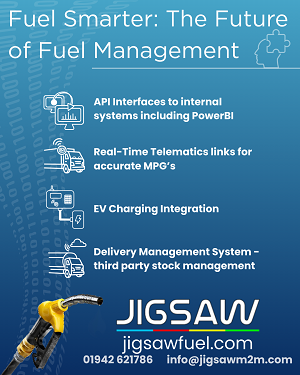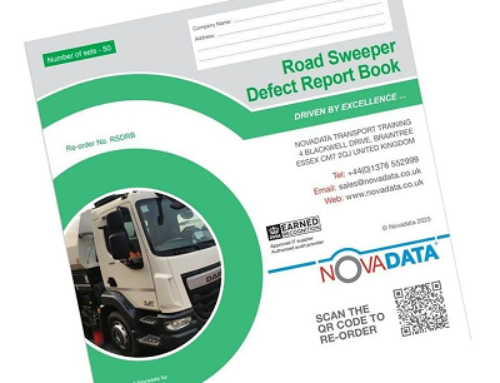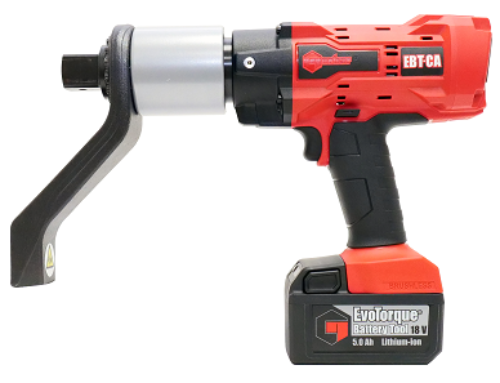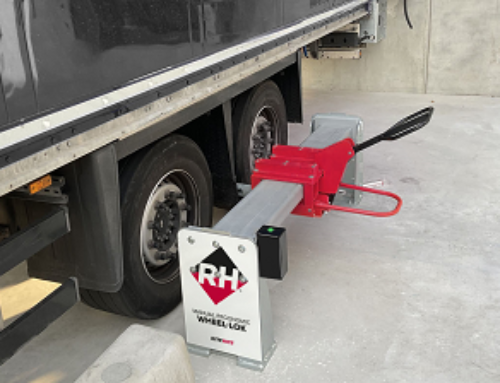ATS Euromaster warns of increased pressure on SMR budgets
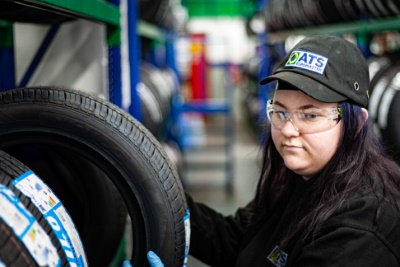 ATS Euromaster has warned of a range of uncertainties facing businesses as 2025 begins – ranging from the unquantified impact of the national insurance and minimum wage rates announced in the 2024 Budget, to the challenges of the zero emission vehicle (ZEV) mandate – all taking place against a backdrop of increasing geopolitical instability and potential trade wars.
ATS Euromaster has warned of a range of uncertainties facing businesses as 2025 begins – ranging from the unquantified impact of the national insurance and minimum wage rates announced in the 2024 Budget, to the challenges of the zero emission vehicle (ZEV) mandate – all taking place against a backdrop of increasing geopolitical instability and potential trade wars.
The company highlights how inflationary pressures are driving up the cost of labour, parts, and materials, making service, maintenance and repair (SMR) more expensive. It comes at a time when fleet budgets are already under pressure.
ATS Euromaster has seen the impact of this already as fleets squeeze maintenance programmes.
“Across the market fleets are not spending on SMR to the same level,” said Mark Holland, operations director at ATS Euromaster.
“Everyone seems to be tightening their belts with brakes given lower change rates, for example.
“Brakes are as important as the contact points on the road but the visibility of such safety items – unlike worn tyres – is not immediately obvious. So, then it comes down to timing and how fleet managers can ensure drivers in their vehicles are safe. If you’re running a tighter SMR schedule, how do you know everything is safe? It’s a significant question for fleet managers.”
Another sign that SMR budgets are being squeezed for 2025 is the de-tiering in tyre brand policy for some businesses, says ATS Euromaster.
Budget tyres will help ease pressures on SMR budgets in the short term, it adds, but may not provide the same level of in-life longevity and require changing more often.
“Again, we would urge fleet managers to ensure they have a firm grip on their fleet’s general maintenance if tyres are being run for longer or budget tyres are on the agenda, then make sure they are appropriate,” said Mark.
“Sacrificing safety for a reduced SMR spend is a no-go zone.”
The company advises fleet managers to be proactive in their approach to fleet inspections and management to minimise costly repairs; whilst maintenance costs require budget, they keep vehicles on road and earning. Also, by being flexible and adaptable in budgeting processes fleets can increase their ability to account for unexpected cost increases and the prospect of SMR inflation, it adds.
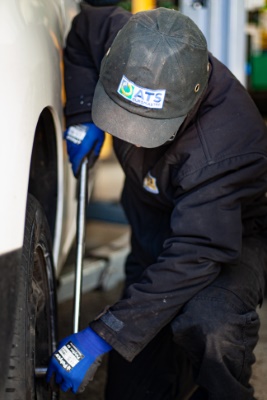 ATS Euromaster suggests working with SMR providers much more closely to satisfy demands and ensure slots for maintenance work can be secured as required.
ATS Euromaster suggests working with SMR providers much more closely to satisfy demands and ensure slots for maintenance work can be secured as required.
Also, a beneficial approach would be to use telematics and data analytics to predict potential failures and schedule maintenance proactively, it says, reducing downtime and unexpected costs – particularly where SMR items are being pushed to the limit.
The political instability in the Middle East may well have an impact on economic performance across the globe, ATS Euromaster predicts.
Houthi rebel attacks on ships disrupted trade earlier in 2024, it observes, which has increased nervousness around these trade channels, heightened by tensions around use of the important Suez Canal. Further destabilisation in the Middle East could lead to significant supply issues as ships travel further to avoid the troubled area.
While semiconductor shortages are improving, they have not gone away completely, the firm adds: some industry analysts predict it could persist in certain sectors into 2025 and beyond. Automotive chips, especially those for advanced features, might still be constrained.
Lingering supply chain issues may also continue to affect fleets, it suggests, particularly if internal combustion engine (ICE) vehicle supply is constrained in favour of electric vehicles to meet enhanced ZEV requirements.
“The likelihood is that we may see a continuation of extended vehicle lifecycles,” Mark noted.
Some fleets are already comfortable with this, but for other fleets it means a requirement for more maintenance needs. Modern vehicles are increasingly complex, with more electronics and sophisticated components. Maintaining older vehicles with these technologies can be challenging.”
To prepare for the challenges of 2025, ATS Euromaster highlighted several actions fleet managers could take.
“Be proactive; inspect your fleet regularly, maintenance is less costly than a VOR and repair work,” the company said.
“Plan ahead for SMR requirements; consider potential disruptions and cost increases and have contingency strategy.
“Embrace technology; ignore new tech at your peril. Utilising technology, such as telematics and AI can help your organisation optimise SMR and reduce costs.
“Let training decrease the strain. Investing in driver training will ensure drivers put less strain on the vehicles, be involved in fewer collisions and reduce SMR spend.
“Budget isn’t always best. Think whole-life cost rather than cheapest on the day – analyse spend against longevity to ensure SMR budget is being spent wisely.”





